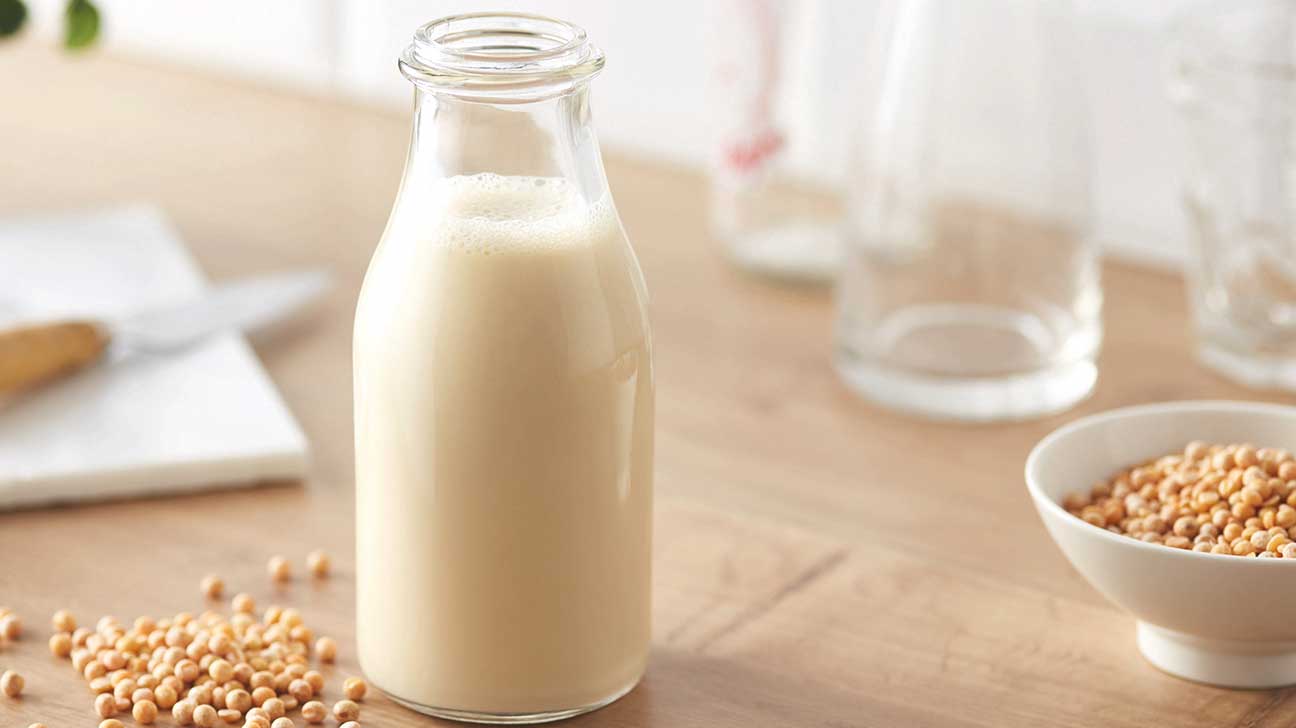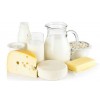How to make soya milk?
Soy milk or soymilk is a plant-based drink produced by soaking and grinding soybeans, boiling the mixture, and filtering out remaining particulates. It is a stable emulsion of oil, water, and protein. Its original form is a natural by-product of the manufacture of tofu. It became a common beverage in Europe and North America in the 21st century, as production techniques were developed to give it taste and consistency more closely resembling dairy milk. Along with similar vegetable-based "milk", like almond and rice milk, soy milk may be used as a substitute for dairy milk by individuals who are vegan or lactose intolerant.
Soy milk nutrition
1. Soy Milk Protein
Include soy milk in your diet as a source of protein. According to the National Center for Complementary and Integrative Health, soy protein helps lower levels of LDL or bad cholesterol. Each cup of unsweetened, plain soy milk provides 7 grams of protein, according to the U.S. Department of Agriculture.
Unlike most plant-based proteins — which contain some, but not all, of the amino acids you need in your diet — soy contains all nine essential amino acids. Your body assembles these amino acids into new proteins, including antibodies essential for immune system function, structural proteins that hold your tissues together, and enzymes that help your cells produce energy.
2. Calcium and Iron
Drinking soy milk also helps boost your calcium and iron. Your body relies on the calcium from your diet to maintain dense and strong bone tissue. Without it, your body draws on your bones as a source of calcium, which reduces your bone density over time.
One cup of unsweetened plain soy milk boasts a calcium content of 301 milligrams. This contributes close to 30 percent toward your recommended daily calcium intake of 1,000 to 1,200 milligrams, according to the Office of Dietary Supplements.
The iron in soy milk helps your red blood vessels function properly, helping ensure that all the tissues throughout your body get the oxygen they need. Each serving of soy milk provides 1.1 milligrams of iron, contributing to the recommended daily intake of 8 milligrams for men and 18 milligrams for women.
3. Riboflavin and Vitamin B12
Soy milk also helps you consume B-complex vitamins and serves as an especially rich source of riboflavin, or vitamin B2, and vitamin B12. Getting enough vitamin B12 in your diet helps your cells produce DNA, aids in red blood cell function and also keep your nerves healthy.
One cup of soy milk provides 3 micrograms of vitamin B12, more than the 2.4 micrograms you need each day. The riboflavin in soy milk helps your cells produce energy, and it also shields your DNA from damage. Drinking one cup of soy milk boosts your riboflavin by 0.5 milligrams — close to 50 percent of the recommended daily intake.
How to make?
Ingredients
1 3/4 cups dried soybeans2 quarts water1 pandan leaf (optional)1 slice fresh ginger root (optional)1 teaspoon vanilla extract (optional)1/2 cup white sugar.
Directions
Soak beans overnight in water. Drain, rinse and discard water. Combine soaked beans with 2 quarts fresh water. In a food processor or blender, process beans with water until smooth.
Strain into a pot through a double layer of cheesecloth, or a fine sieve. Add pandan leaf or ginger, and sugar to taste. Boil soy milk for 15 minutes. Stir frequently to prevent skin from forming. Remove pandan leaf or ginger, then flavor with vanilla. Stir in sugar to taste. Cool to room temperature, then refrigerate.
Note
The pandan leaf, ginger, and vanilla are optional, but they help disguise the bean flavor.
The exceptions are those who have soy allergies and recent breast cancer patients. Because soy products, including soy milk, contain chemicals similar in structure to estrogen, a diet rich in soy might pose a health risk if you've recently had breast cancer, which is sometimes sensitive to estrogen. As a result, further research is needed to determine soy's safety after breast cancer.
However, some types of soy milk do have a major nutritional disadvantage because of their added sugar content. Added sugars boost your calories without offering nutritional value, and increase your risk of cardiovascular disease. Select unsweetened soy milk to minimize added sugar — it contains just 1 gram of naturally occurring sugars and no added sugar. Chocolate and vanilla flavored soy milks, in contrast, contain 20 and 7 grams of added sugar per serving, respectively.
Some negative effects of soy milk
Although there are a lot of benefits of soy milk, the drawbacks may make you double think this beverage. The debate of soy milk danger stems from researchers who say that the aforementioned isoflavones, often praised as being the main contributors to men’s health, are doing more harm than good. Both genistein and daidzein have been shown to act very similarly to that of estrogen: the common female hormone responsible for proper female development and menstruation. Specifically, the substances found in soy milk are known as phytoestrogens, which are estrogens that are produced by plants. The main issue that arises is their interaction with male hormones, causing side effects such as:
Breast development and nipple tenderness
Erectile dysfunction and decreased libido
Decreased sperm count
Mood swings and heightened emotions
While men do inherently create some amount of estrogen, it is often balanced accordingly, ensuring there is a proper ratio of estrogen to testosterone in the male body. Researchers have pinpointed daidzein as being the specific cause of these side effects.
Soy itself may have harmful side effects on the brain, as a study conducted by researchers from Loughborough University in England found that people in their late 60s and others who consumed large amounts of tofu had a higher risk of developing dementia and memory impairment when compared to those who only ate a moderate amount.
A growing concern is mothers choosing to feed their babies soy milk or soy-based formula. It is estimated that 35 percent of bottle-fed babies in the United States receive at least some of their protein from soy. This issue has raised the attention of the American Academy of Pediatrics (AAP), and they are currently taking steps to change this by recommending that all infants who cannot breastfeed be given cow’s milk formula as the preferred alternative, and only be given soy formula when medically necessary.
Related Articles
Search
Categories
Popular Posts




















Comments: 0
No comments